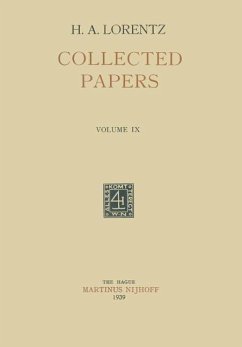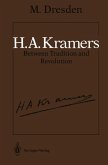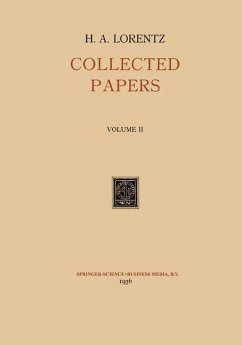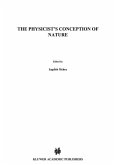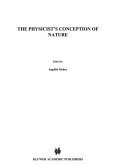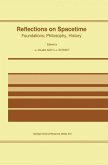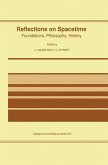With the present ninth volume we bring to a conclusion the edition of the Collected Papers of Professor H. A. Lorentz. It contains the evidence of his constant activity to promote the interest in science of a larger public, in particular of his country men, by addresses on se veraloccasions, by articles in magazines and newspapers, and other wise. In a certain way in this part of his work he belongs more partic ularly to his country, therefore we reproduce it in the original lang uage, with the exception of his inaugural address as Leiden professor early in I878, which readers abroad might be interested in. The sketch of Ludwig Boltzmann, in the German language, contains a most powerful and deep-going survey of the scientific work of this genius. In several places the character of the man's personality rather than that 0/ the scientist reveals itself, his attitude towards various problems and his personal views. In his first address he refers to the value of mathematics, we hear his dislike lor too vivid visual speculations and crude hypotheses, his taste lor the soberness of mathematical formulae, where he argues that the fundamental principles must needs escape further explanation. On page 54 we read what he said about determin ism, and on page I8I he expresses himself on the relation of matter and mind. His intimate feelings on space and time, and the aether, are touched upon on pages 240, 26I, 274.

